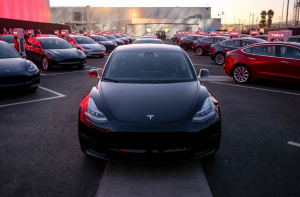Homes, roads get smarter with new plans and partners
This week’s Smart Living roundup features technologies that prevent fatal car collisions, valets from taking your car for a spin, a smart transport solution, and partnerships for smarter homes.
![]()
NHTSA unveils V2V plan
Back in February, the National Highway Traffic Safety Administration stated that though the organization is wary about connected car solutions that may soon be fitted in cars, it believes that vehicle to vehicle communication may be key in preventing fatal car collisions.
After years of research, the NHTSA has now unveiled a plan to make roads safer by fitting cars with wireless gear capable of communicating with each other to warn drivers if the car four cars in front did a hard brake, if it’s safe to change lanes or turn corners, or stop if a speeding vehicle is about to run a red light.
The agency plans to have this technology fitted in all cars by 2020 and the technology will cost about $350 per vehicle.
Chevrolet will keep an eye on valets
General Motors Co. is upgrading the Valet Mode in Chevrolet cars starting with its Corvette Stingray 2015. The upgrade will allow car owners to monitor how valets are handling their vehicles. When activated, the interior storage compartments are locked, usage of infotainment is prevented, and the driver’s actions are all recorded in video and audio, plus the car data is recorded.
“Think of it as a baby monitor for your car,” said Harlan Charles, the product manager for the Corvette line, in a statement. “Anyone who has felt apprehension about handing over their keys will appreciate the peace of mind of knowing exactly what happened while their baby was out of sight.”
The point of the system is to prevent valets from abusing your precious vehicle, and if they do decide to drive at top speed, you’ll have evidence to show why the valet should be reprimanded or fired.
Continental invades the Valley for smart car solutions
![]() Continental AG has launched a new business unit called Continental Intelligent Transportation Systems, LLC in Silicon Valley that will focus on Intelligent Transportation Systems (ITS), led by Seval Oz, an expert in vehicle networking and automation who previously worked on Google Inc.’s self-driving car.
Continental AG has launched a new business unit called Continental Intelligent Transportation Systems, LLC in Silicon Valley that will focus on Intelligent Transportation Systems (ITS), led by Seval Oz, an expert in vehicle networking and automation who previously worked on Google Inc.’s self-driving car.
“This step is an excellent example of our strategy to make the car an integral part of the ‘Internet of Everything’. Our key objectives include eliminating road accidents, minimizing energy consumption, maximizing comfort and usability of vehicles, and enabling them to exchange information with each other in real-time,” said Dr. Elmar Degenhart, CEO of Continental.
He added: “Our new Team will be combining some of the key strengths required to create this kind of pioneering innovation – these strengths include the know-how and inventiveness of Silicon Valley’s leading experts in digital technology and the expertise of Continental in developing unique and reliable solutions for large-scale automotive production.”
ADT partners with IFTTT
ADT LLC has partnered with IFTTT Inc. to help people better manage their home security. The partnership will include the launch of an ADT Pulse channel on IFTTT, a consumer-ready programming platform that stands for “If This Then That,” making their system compatible with other connected devices in the home network.
When the ADT Pulse channel launches, it will undergo months of rigorous testing to make sure that connecting the security automation system will not be compromised when other connected devices are integrated to it before it opens the channel to the public next year.
Big Ass Fans teams up with Nest
In June, Big Ass Fans Co. introduced its first smart residential ceiling fan called Haiku, which is fitted with SenseMe technology able to tell when someone is in the room, when to turn the blades faster or slower, and learns homeowner preferences.
Now, Big Ass Fans has teamed up with Nest Labs Inc. to help reduce air conditioning costs. The integration happens with the use of an iOS app.
Using the Nest-Haiku with SenseMe combination in your home can lead to more energy savings as Haiku will be able to keep the temperature cooler even if the thermostat is turned a few degrees higher. According to Big Ass Fans’ release, each degree you raise your Nest Thermostat you save five percent on energy costs. Now, you can give your A/C unit a rest without having to suffer.
feature image by Thomas Hawk via photopin cc
photo credit: Alessandro Pinna via photopin cc
A message from John Furrier, co-founder of SiliconANGLE:
Your vote of support is important to us and it helps us keep the content FREE.
One click below supports our mission to provide free, deep, and relevant content.
Join our community on YouTube
Join the community that includes more than 15,000 #CubeAlumni experts, including Amazon.com CEO Andy Jassy, Dell Technologies founder and CEO Michael Dell, Intel CEO Pat Gelsinger, and many more luminaries and experts.
THANK YOU













